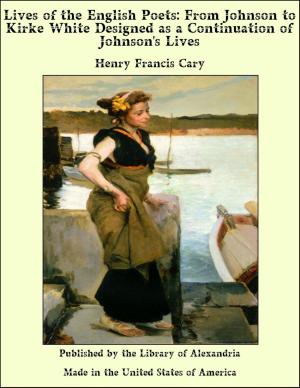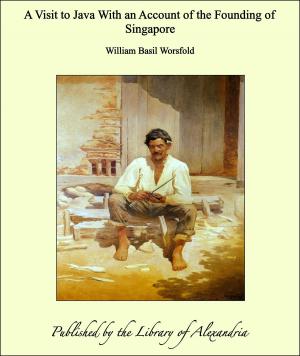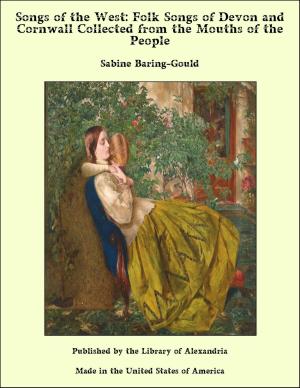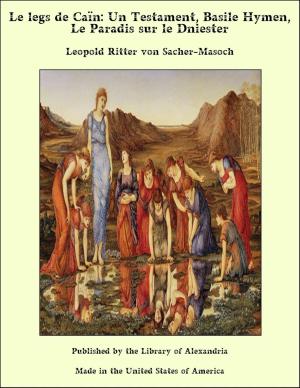Embassy to the Eastern Courts of Cochin-China, Siam, and Muscat in the U. S. Sloop-of-war Peacock, David Geisinger, Commander, During the Years 1832-3-4
Nonfiction, Religion & Spirituality, New Age, History, Fiction & Literature| Author: | Edmund Roberts | ISBN: | 9781465591913 |
| Publisher: | Library of Alexandria | Publication: | March 8, 2015 |
| Imprint: | Language: | English |
| Author: | Edmund Roberts |
| ISBN: | 9781465591913 |
| Publisher: | Library of Alexandria |
| Publication: | March 8, 2015 |
| Imprint: | |
| Language: | English |
Among the principal articles of export from the abovementioned islands is orchilla, a species of lichen. It is used for dying any shade of purple or crimson, and is superior to the same kind of moss found in Italy or the Canaries. This vegetable product glitters, as a sparkling gem, in the royal diadem of Portugal, having been monopolized by the crown, to which it yields an annual revenue of 200,000. The right of purchase claimed by the crown, allows only five cents per pound. Were it not for this unjust monopoly, orchilla would readily sell at twenty-five cents the pound. It is exported to Lisbon, and there sold, by the agents of the royal trader, to foreign merchants, who re-export it to their respective countries. Salt is produced at these islands, in large quantities, and furnishes a considerable article of export for the United States’ markets; being used for the salting of beef, butter, &c. Heavy cargoes of it are exported, principally by Americans, to Rio Grande and La Plata, for the curing of jerked or dried beef, which finds a ready sale in the market of Havana. It is also purchased by American sealers to salt the skins. In the list of fruits on this cluster of islands, the red and black grape are conspicuous. They furnish, converted into wine, a considerable article of internal commerce. St. Antonio alone, says Mr. Masters, of Sal, produces, annually, from fifteen hundred to two thousand pipes of wine. Owing to the ignorance of the inhabitants in the process of fermentation, it is of ordinary quality, generally unfit for transportation, and may be purchased at the rate of ten or twelve dollars per pipe. If there be truth in the often-repeated assertion, that volcanic countries produce the best wines, Fogo will export, at a future day, a very superior article. Since the year 1827, coffee, nearly equal in flavour to that of Mocha, has been cultivated with success. Previously to that period, the crown had laid an almost prohibitory duty on the importation of this article from its empoverished islanders, in order to encourage the agricultural produce of its more extensive southern possessions, in the vast territory of Brazil. Every planter, now, looks on his plantation as a source of increasing profit, and within five or six years, coffee will become the leading article of commerce from the Cape de Verd islands. It now realizes ten cents per pound. The remaining articles for export, are hides, skins, goats, and asses. We found the inhabitants, on several of these islands, suffering extreme distress from a want of provisions, occasioned by a failure in the periodical rains, for two successive years. At Fogo, many died from starvation. The inhabitants of this island have, long since, annually exported ten or twelve small cargoes of corn to Madeira, and in this, their day of suffering, the inhabitants of that sister-island received them by hundreds with every mark of kindness and attention. Some small relief was likewise administered from the Peacock. The whole appearance of the Cape de Verds, in consequence of this long-continued drought, was exceedingly arid; the grass assumed a dark brown colour, similar to that which may be seen on our western prairies, when a fire has passed over them. Nothing green was visible in the vicinity of Porto Praya, save in the deep valleys, lying on the outskirts of the town, where some moisture yet remained, and where water was obtained for the suffering population.
Among the principal articles of export from the abovementioned islands is orchilla, a species of lichen. It is used for dying any shade of purple or crimson, and is superior to the same kind of moss found in Italy or the Canaries. This vegetable product glitters, as a sparkling gem, in the royal diadem of Portugal, having been monopolized by the crown, to which it yields an annual revenue of 200,000. The right of purchase claimed by the crown, allows only five cents per pound. Were it not for this unjust monopoly, orchilla would readily sell at twenty-five cents the pound. It is exported to Lisbon, and there sold, by the agents of the royal trader, to foreign merchants, who re-export it to their respective countries. Salt is produced at these islands, in large quantities, and furnishes a considerable article of export for the United States’ markets; being used for the salting of beef, butter, &c. Heavy cargoes of it are exported, principally by Americans, to Rio Grande and La Plata, for the curing of jerked or dried beef, which finds a ready sale in the market of Havana. It is also purchased by American sealers to salt the skins. In the list of fruits on this cluster of islands, the red and black grape are conspicuous. They furnish, converted into wine, a considerable article of internal commerce. St. Antonio alone, says Mr. Masters, of Sal, produces, annually, from fifteen hundred to two thousand pipes of wine. Owing to the ignorance of the inhabitants in the process of fermentation, it is of ordinary quality, generally unfit for transportation, and may be purchased at the rate of ten or twelve dollars per pipe. If there be truth in the often-repeated assertion, that volcanic countries produce the best wines, Fogo will export, at a future day, a very superior article. Since the year 1827, coffee, nearly equal in flavour to that of Mocha, has been cultivated with success. Previously to that period, the crown had laid an almost prohibitory duty on the importation of this article from its empoverished islanders, in order to encourage the agricultural produce of its more extensive southern possessions, in the vast territory of Brazil. Every planter, now, looks on his plantation as a source of increasing profit, and within five or six years, coffee will become the leading article of commerce from the Cape de Verd islands. It now realizes ten cents per pound. The remaining articles for export, are hides, skins, goats, and asses. We found the inhabitants, on several of these islands, suffering extreme distress from a want of provisions, occasioned by a failure in the periodical rains, for two successive years. At Fogo, many died from starvation. The inhabitants of this island have, long since, annually exported ten or twelve small cargoes of corn to Madeira, and in this, their day of suffering, the inhabitants of that sister-island received them by hundreds with every mark of kindness and attention. Some small relief was likewise administered from the Peacock. The whole appearance of the Cape de Verds, in consequence of this long-continued drought, was exceedingly arid; the grass assumed a dark brown colour, similar to that which may be seen on our western prairies, when a fire has passed over them. Nothing green was visible in the vicinity of Porto Praya, save in the deep valleys, lying on the outskirts of the town, where some moisture yet remained, and where water was obtained for the suffering population.















